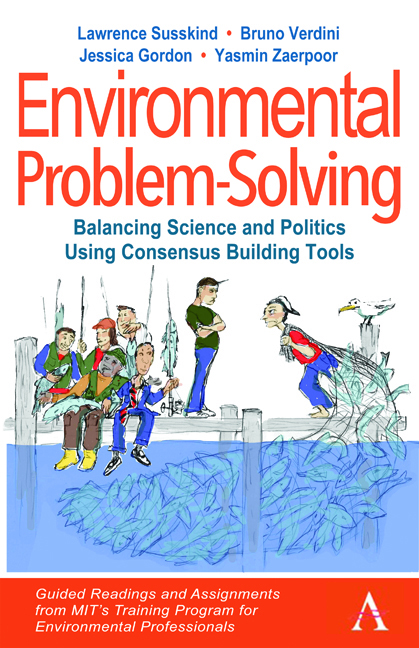 Environmental Problem-Solving: Balancing Science and Politics Using Consensus Building Tools
Environmental Problem-Solving: Balancing Science and Politics Using Consensus Building Tools Book contents
- Frontmatter
- Contents
- Acknowledgments
- Credits and Permissions
- Introduction
- Unit I: Influencing The Environmental Policy-Making Process
- Unit II: Ethical Dilemmas In Environmental Problem-Solving
- Unit III: Developments In Policy And Project Analysis
- Unit IV: Collective Action To Solve Environmental Problems
- Final Exam
- Conclusions
- Biographies
- References
- Index
Unit II: - Ethical Dilemmas In Environmental Problem-Solving
Published online by Cambridge University Press: 15 December 2020
- Frontmatter
- Contents
- Acknowledgments
- Credits and Permissions
- Introduction
- Unit I: Influencing The Environmental Policy-Making Process
- Unit II: Ethical Dilemmas In Environmental Problem-Solving
- Unit III: Developments In Policy And Project Analysis
- Unit IV: Collective Action To Solve Environmental Problems
- Final Exam
- Conclusions
- Biographies
- References
- Index
Summary
Introduction
All environmental problem solvers, whether public officials or not, have to make ethical assumptions. These are usually informed by basic philosophical beliefs about what is right and what is wrong. Discussions of environmental ethics usually lead to a cascade of follow-up inquiries that often dominate environmental policy-making and problem-solving: What is the proper relationship between humans and the environment? Do humans have a moral obligation to protect the environment? How can such an obligation be reconciled with our need to survive and our desire to prosper?
The inherent conflict posed by these questions constitutes what philosophers call an ethical dilemma. Multiple answers are available depending on the lens we rely on. For example, on one side are those who think in purely utilitarian terms (i.e., the instrumental value of the environment). They believe that humans can and should do whatever will enable them to derive the most benefit or satisfaction from the environment. An alternative view is that humans have a responsibility to serve as stewards of the natural environment (i.e., the intrinsic value of environment). This group of thinkers believes we should do whatever we can to protect the environment. We do not presume to know which choices are correct, but we are convinced that all environmental problem-solving needs to confront them.
From our standpoint, three other ethical dilemmas are equally compelling: (1) Should knowledge derived through the application of formal scientific methods outweigh local or indigenous knowledge when it comes to decisions about natural resource management? (2) Should economic concerns outweigh long-term sustainability of depletable natural resources and ecosystem services? And, finally, (3) Should we err on the side of precaution when there is uncertainty about the possible effects of proposed human actions, or should we have confidence that human ingenuity (and technological innovation) will enable us to repair any damage our actions might cause?
This unit illuminates a range of arguments on all sides of these dilemmas, from advocates of “deep ecology,” who believe that “reverence for life determines who we are,” to “pragmatists,” who believe that “the satisfaction of human preferences should be the overriding goal of public policy.”
- Type
- Chapter
- Information
- Environmental Problem-Solving: Balancing Science and Politics Using Consensus Building ToolsGuided Readings and Assignments from MIT's Training Program for Environmental Professionals, pp. 106 - 158Publisher: Anthem PressPrint publication year: 2020


